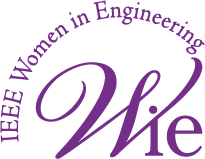Latest Past Events
𝐍𝐞𝐰 𝐄𝐫𝐚 𝐨𝐟 𝐄𝐧𝐭𝐫𝐞𝐩𝐫𝐞𝐧𝐞𝐮𝐫𝐬𝐡𝐢𝐩
Hub 350, 350 Legget Dr, Kanata 350 Legget Dr, KanataA great opportunity to network, learn, and share ideas! Join us in the "𝐍𝐞𝐰 𝐄𝐫𝐚 𝐨𝐟 𝐄𝐧𝐭𝐫𝐞𝐩𝐫𝐞𝐧𝐞𝐮𝐫𝐬𝐡𝐢𝐩" event, hosted by the IEEE Young Professionals Ottawa, IEEE Women In Engineering Ottawa, Institution of Engineering and Technology (IET), and The Ottawa Network (TON). 𝐑𝐞𝐠𝐢𝐬𝐭𝐫𝐚𝐭𝐢𝐨𝐧 𝐥𝐢𝐧𝐤: https://events.vtools.ieee.org/m/447124
Finance Tips for Young Professionals – Professional Development Series (Bonus session)
Online eventJoin us for a bonus session in our Professional Development Series: "Finance Tips for Young Professionals" with Tobi Aribaloye on June 22nd 6:00 PM EST. Register
ANCWT On Line Cohort for the year 2021
Online - Webinar ONWe are excited to announce the first-ever ANCWT On-Line Cohort for the year 2021. We are inviting all the new immigrant women and graduating female candidates to apply. This special cohort is going to be hosted on Zoom and uOttawa Brightsapce will be the Leaning management system. Two Steps for getting into the Cohort: Fill the Pre-screening form by clicking the register button below. Register We will contact you for registration via email if you are shortlisted. Applications are welcomed until May 2nd midnight. Mark the date as June 7, 2021, to June 25th, 2021.

